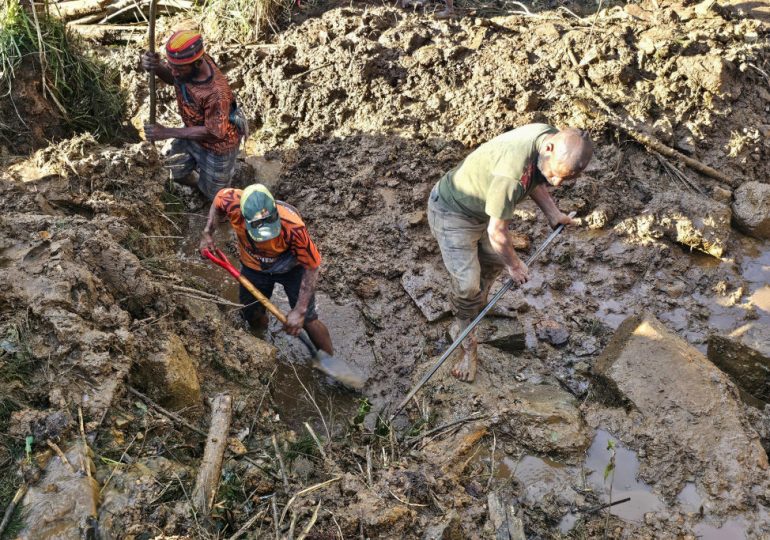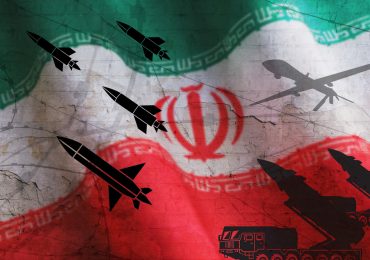Thousands of villagers in Papua New Guinea (PNG) may be evacuated over fears that a second landslide could take place following Friday’s deadly disaster in the Enga province.
[time-brightcove not-tgx=”true”]
Serhan Aktoprak, chief of the U.N. International Organization for Migration (IOM) mission in PNG, said Tuesday that another landslide is possible, and some 8,000 people may require evacuation.
“This is a major concern,” Aktoprak told the Associated Press. “The movement of the land and the debris is causing a serious risk, and overall, the total number of people that may be affected might be 6,000 or more.”
“If this debris mass is not stopped, if it continues moving, it can gain speed and further wipe out other communities and villages further down,” he added. Friday’s landslides devastated the Yambali village after a limestone mountainside sheared away at 3 a.m. local time.
The government fears that more than 2,000 people have been buried alive in the country’s highlands, while the U.N. has estimated 670 deaths. Aktoprak previously said these figures will “remain fluid.” The remains of five people have been recovered by emergency responders so far.
On Sunday, acting director of the country’s National Disaster Center, Luseta Laso Mana, sent a letter to the U.N. resident coordinator calling for international help. So far, Australia has pledged an initial $2.5 million in humanitarian assistance for PNG, its closest neighbor.
China has also said it will provide assistance for disaster relief, as well as future reconstruction efforts. “We believe that the people of Papua New Guinea will be able to overcome difficulties and rebuild their homeland at an early date,” foreign ministry spokesperson Mao Ning said during a daily news briefing.
As the international community rallies to provide assistance, here are some ways you can help.
U.N.’s International Organization for Migration’s mission in Papua New Guinea
The IOM is working closely with the government to steer international response efforts and report key figures. IOM has operated in PNG since 2001, working with governments across the globe to support displaced peoples and vulnerable migrants. The U.N. body provides humanitarian assistance and responds to demanding emergencies such as Friday’s landslide. To learn more, you can visit their website here.
CARE International
The humanitarian organization has had an operational presence in PNG since 1989. CARE provides community development, sanitation, education, and natural resource management services. Since Friday’s disaster, CARE had been a direct responder on the ground, providing food and facilitating basic hygiene. The charity will also support with shelter, facilities, and agriculture as the local community recovers from the landslide. CARE has launched a donation appeal specifically for the landslide relief.
Papua New Guinea’s Red Cross Society
The PNG Red Cross Society is also coordinating vital first response efforts. Officials from the provincial governor’s office, police, defense forces, and local NGOs have formed an emergency response team. The charity provides first aid training and support during catastrophic events or accidents and is a key resource in reporting death tolls.
Water Aid
The landslides have increased concerns that underground water flowing down the mountain could contaminate local water sources and give rise to contagious diseases. The charity reports that half the population already lacks access to nearby pure water sources, while 8.2 million people, or four in five citizens, do not have access to their own toilet.
Caritas Australia
Caritas Australia, an aid agency of the Australian Catholic Church, is working with partners on the ground to assess and provide the most urgently required aid to affected communities. The charity is seeking online donations to provide food, shelter, and clean water for those who have lost their homes during the landslide.
Leave a comment








